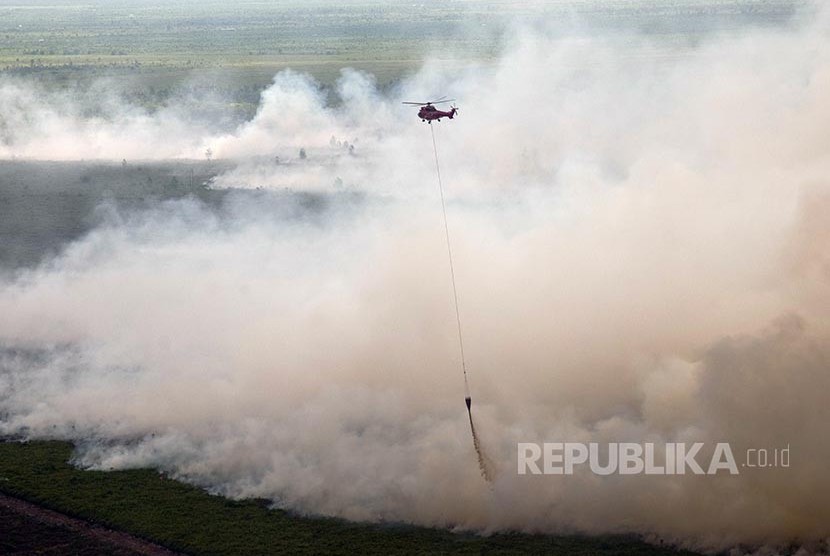REPUBLIKA.CO.ID, PEKANBARU -- Center for Internatioal Forestry Research (CIFOR) is carrying out a long-term study on the condition of peatland in Tanjung Leban, Bengkalis District, Riau Province, to monitor the dynamism of carbon circulation on peatland that were restored after being gutted in fire.
"The study will be carried out for three to five years, by measuring several parameters in three different monitoring plots," said Prof Daniel Murdiyarso, senior CIFOR scientist in Tanjung Leban village, 256 km of Pekanbaru, Riau, Wednesday.
The three different plots of peatlands are located in a mixed forest, oil palm plantation and rubber plantation, respectively.
The peatlands are about five to eight meters deep. The parameters being monitored include carbon reserve, peatland depth, water level fluctuation, net primary production (NPP) and surface elevation change.
CIFOR has installed devices for the study since February 2017 and involved students and lecturers of Riau University, as well as local villagers.
Restoration efforts would not be able to restore the peatland to its previous condition, but at least it would make sure that the peatland would not dry off and is able to maintain its functions and prevent fire.
The study is also expected to provide information on how replanting of trees having economic value such as rubber and oil palm on peatlands could provide long-term benefit for the local villagers.
Muhammad Nus, a local villager, said his one-hectare peatland had improved after being restored with United Nations Development Programme assistance in 2015.
"Previously, this land was planted with oil palm trees and was gutted by huge fires in 2008. Later, it was flooded for four months, so oil palm would not grow anymore," he said.
After undertaking studies on his peatland, "jelutung" trees (Dyera spp) were planted by Japanese researchers and researchers from the University of Riau.
Since then, his peatland has has remained moist and free from fire.


